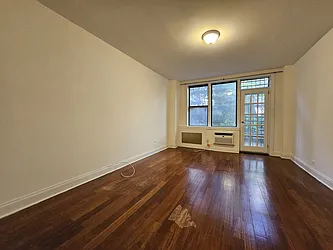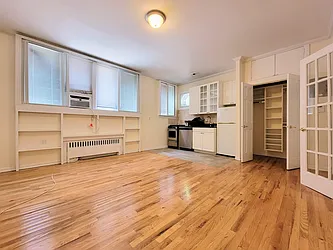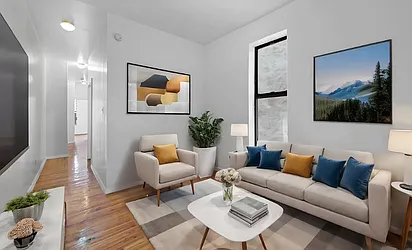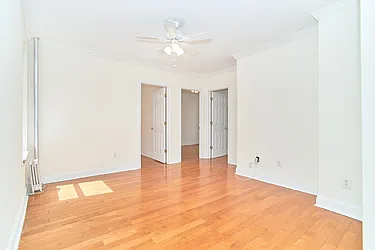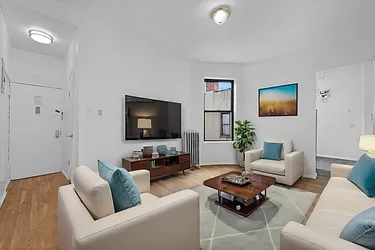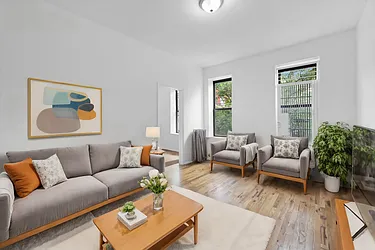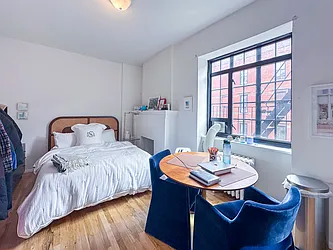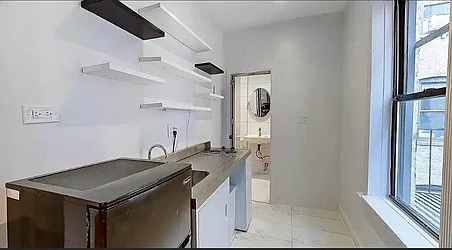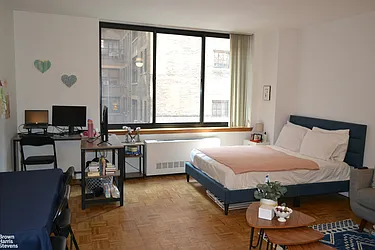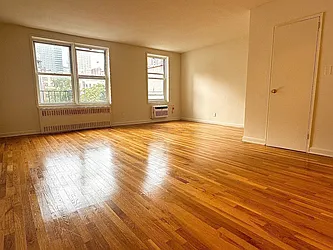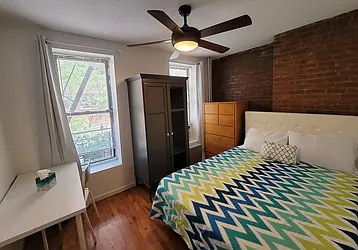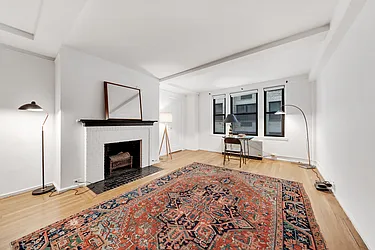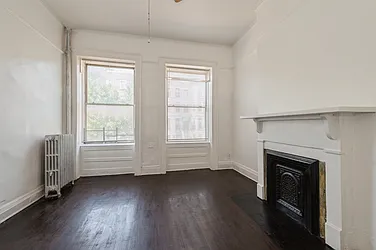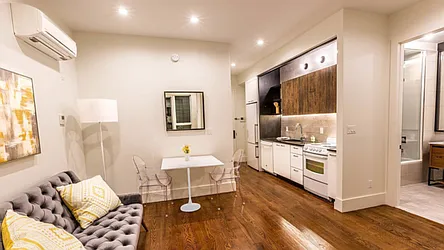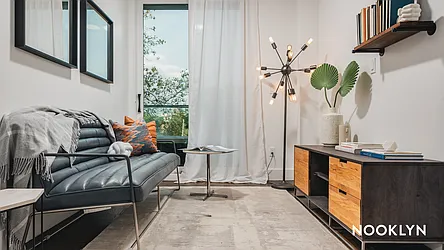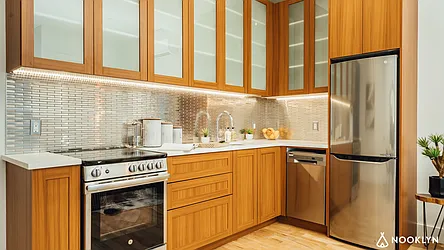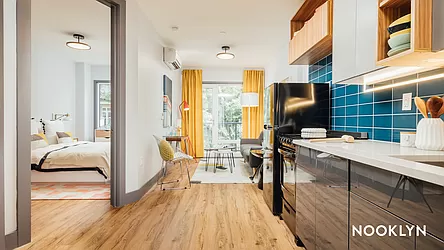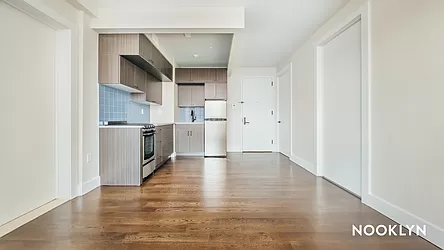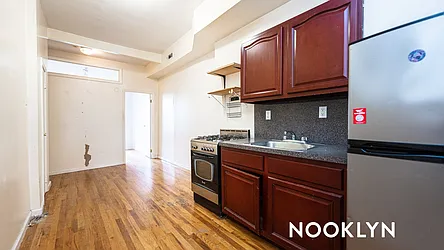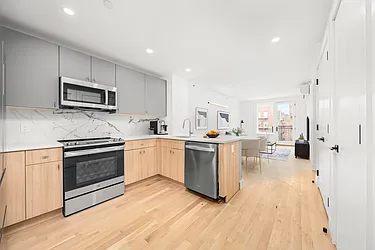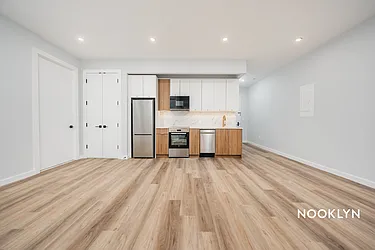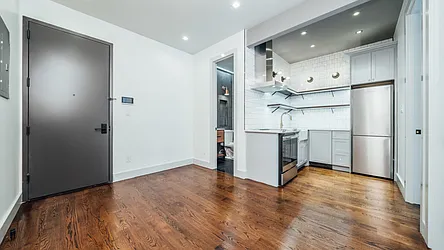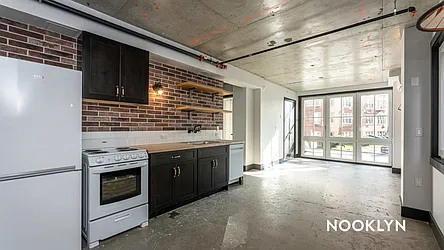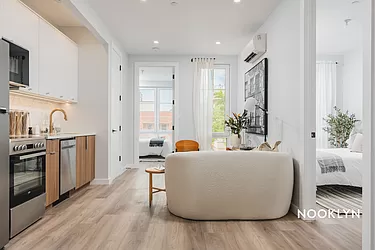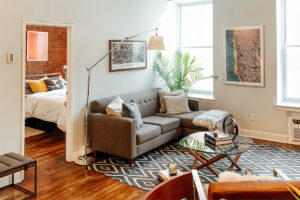COVID-19 + NYC Real Estate
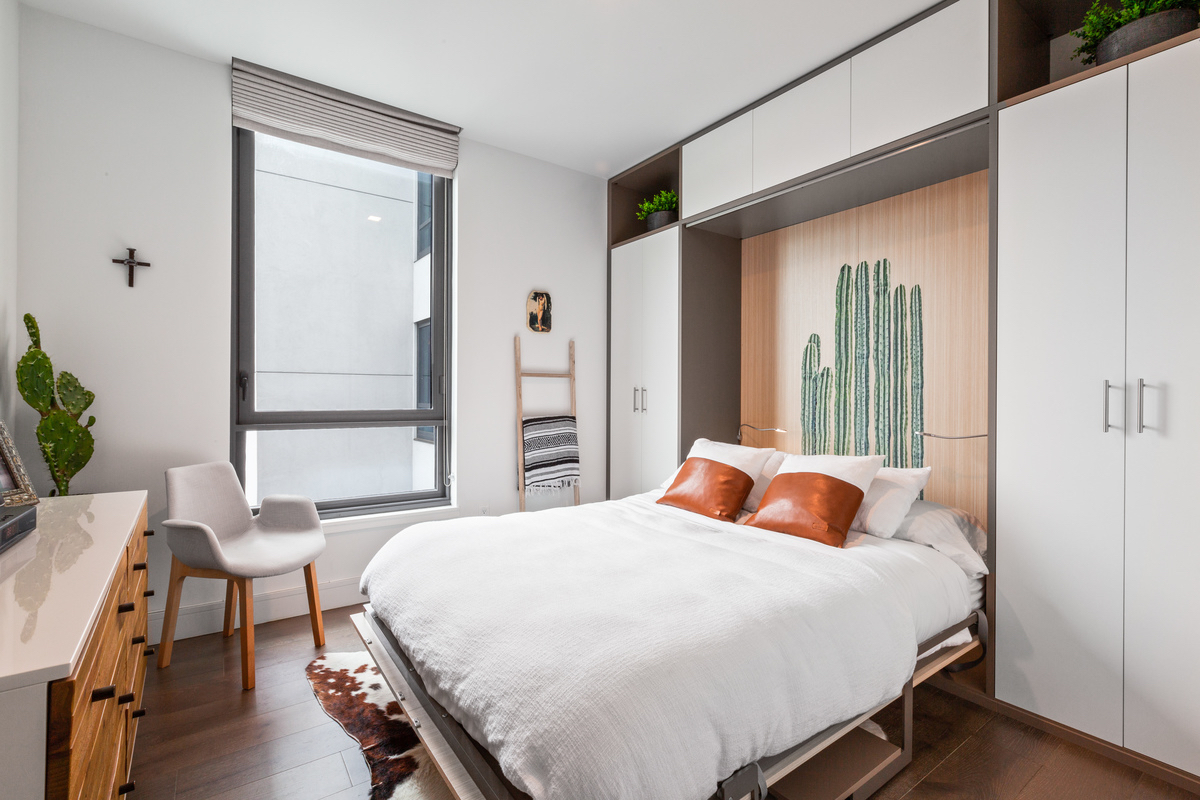
Anxious times call for soothing sleep sanctuaries. (From a listing at 50 Greenpoint Avenue #4A.)
Between the daily news stories, lack of social interactions, and feelings of isolation, it’s not surprising that many New Yorkers are racked with anxiety right now. And if you have anxiety, you’re probably having trouble sleeping. In fact, 35% of Americans don’t get the recommended seven hours of sleep each night even when there’s not a pandemic, according to the Sleep Foundation. A good night’s rest is one of the best ways to relieve some of that stress, so creating a space that’s optimal for resting is critical. But how do you make your bedroom better for sleep, especially in a small NYC apartment? Here, sleep experts and interior designers give StreetEasy readers their top tips.
Create a Sleep Sanctuary, Even in a Small Apartment
“Sleep is the time where your body heals itself, and your brain can rest and rewire itself,” says Dr. Janet Kennedy, a clinical psychologist, and sleep doctor. “Sleep is involved in hormone regulation, appetite, weight control, motor coordination, mood, anxiety, and muscle repair. You name it, sleep helps.”
Obviously, then, we all need a good place to get some shut-eye! But NYC apartments tend to be on the small side, and bedrooms often serve multiple roles, like a living room or home office. (This is especially true if you live in a studio!) Therefore, you need to create some kind of room separation.
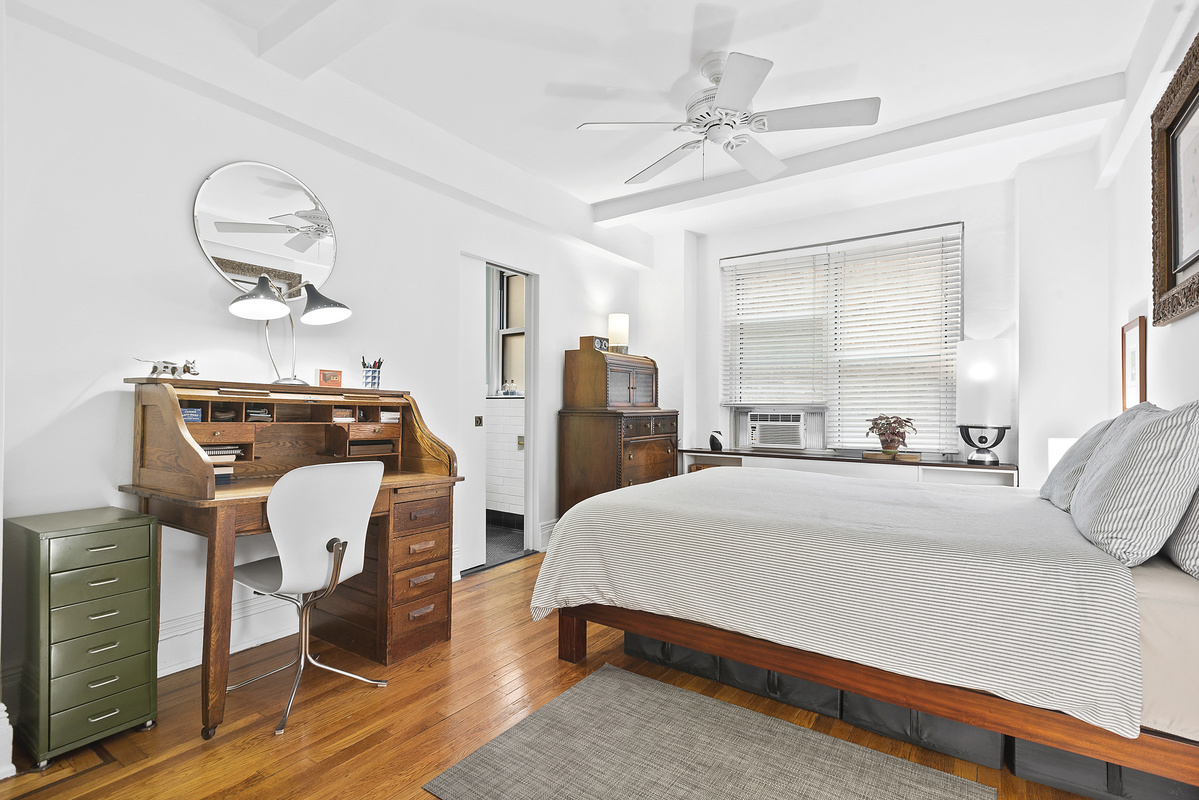
This bedroom doubles as a home office. A little separation helps the spaces feel distinct and defined. (From a listing at 410 Central Park West #3F).
“From a sleep perspective, it’s really important to have another place to sit beside your bed,” says Dr. Kennedy. “If you want the bed to be the sleeping place, to create that sanctuary, you need some other comfortable place to work, eat, and watch TV.”
There are several ways to do that, even with limited space. Here are some tips from HGTV designer Leanne Ford, star of “Restored by the Fords.”
- Add a chair: “If you have room for a loveseat or even a little chair, it can add that bit of separation to create a visual ‘living room’ and ‘bedroom,’” Ford says.
- Designate a dining area: Try not to make your relaxing space be your eating space as well. “Have a designated space where you eat,” she says. “Even if it’s a tiny bistro set, or you create a narrow bar on the wall with bar stools. Don’t eat on the sofa, or worse, in bed.”
- Hang curtains: Putting up walls may not be an option, but you can opt for a more flexible solution to separate rooms. “Thick, heavy curtains are a great way to carve out space between rooms,” Ford says.
Control the Light in Your Bedroom
Light exposure is the main thing that dictates our circadian rhythms, aka our body clocks. Having too much light at night or too little during the day can wreak havoc on our bodies, so it’s important to control how much light enters your sleep sanctuary. “Your body is sensitive to light,” says Dr. Kennedy. “And that affects your levels of melatonin, which affects the depth of your sleep and the length of your sleep.”
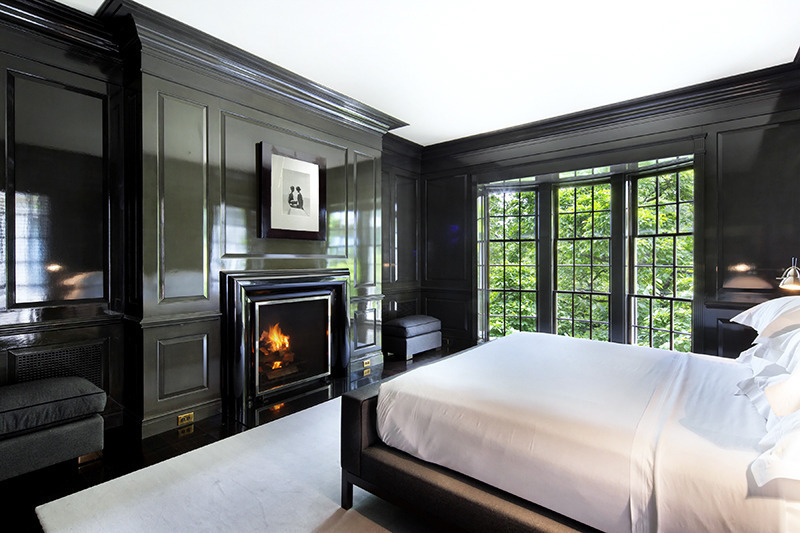
A dark bedroom is more conducive to sleep. (From a listing at 502 East 58th Street).
In the mornings, you want to let in as much light as possible, while at night, you want to make it as dark as possible. This can be difficult in New York, where there’s always ambient street light. But there are still ways you can optimize it.
- Make your bedroom cave-like: “Make sure your bedroom is dark,” advises certified family sleep consultant Lauren Wolf. “Consider getting a blackout shade for the window or even a great eye mask to help create darkness.”
- Use bedside lights: Highlyann Krasnow, founder and creative director of the Design High, particularly likes sconces. “We always include bedside sconces, as they provide the perfect amount of light to read by without illuminating the entire room,” she says.
- Try a dimmer: “Chose light fixtures with dimming options,” says Adam Meshberg, founder and CEO of the architecture and interior-design firm Meshberg Group. “I recommend lowering the lights in your bedroom to help your body transition to bedtime gradually.”
- Buy a lightbox: “Light in the morning is really important for giving you energy,” says Dr. Kennedy. “If you can’t get that naturally in your apartment, try using a lightbox to mimic the sunrise.”
Manhattan Rentals Under $3,500 on StreetEasy Article continues below
Invest in a Good Mattress
The right mattress can make all the difference in catching some quality Z’s. A bad or old one can leave you tossing and turning all night. And while everyone has a different preference, there are a few important factors to consider when purchasing a mattress, says Dr. Kennedy.
- Pressure points: “You want superior support and spinal alignment,” she says. The best mattress for you should relieve unnecessary pressure on muscle and joints.
- Motion isolation: Look for a mattress that reduces motion transfer. “You don’t want to feel your partner moving around at night, because that can disturb your sleep,” she adds.
- Temperature control: Especially important for hot sleepers! Features like mattress cooling pads or temperature regulation will keep things comfy, so you can relax.
Luckily, with so many boxed-mattress companies like Leesa, Casper, and Tuft & Needle, you can get high-quality mattresses in varying firmness levels delivered right to your door. “Spend your money on what’s important,” says Ford, who has partnered with Leesa in the past. “Your sleep is everything.”
Declutter Your Bedroom for Improved Sleep
Clutter is not relaxing! A room filled with a lot of stuff could be hindering you from getting a good night’s sleep, says Wolf. “Keeping your space clutter-free, with minimal distractions, will help give you a Zen-like feeling when you enter it. We want our bedroom to be peaceful and calming.”
The one thing Wolf does recommend keeping by the bed? A pen and paper. “Many of us can’t fall asleep because we have a running to-do list and don’t want to forget anything,” she says. “It helps to write reminders on a piece of paper before bed. Knowing that the tasks are safely written down will help quiet your mind, so you don’t worry about forgetting something.”
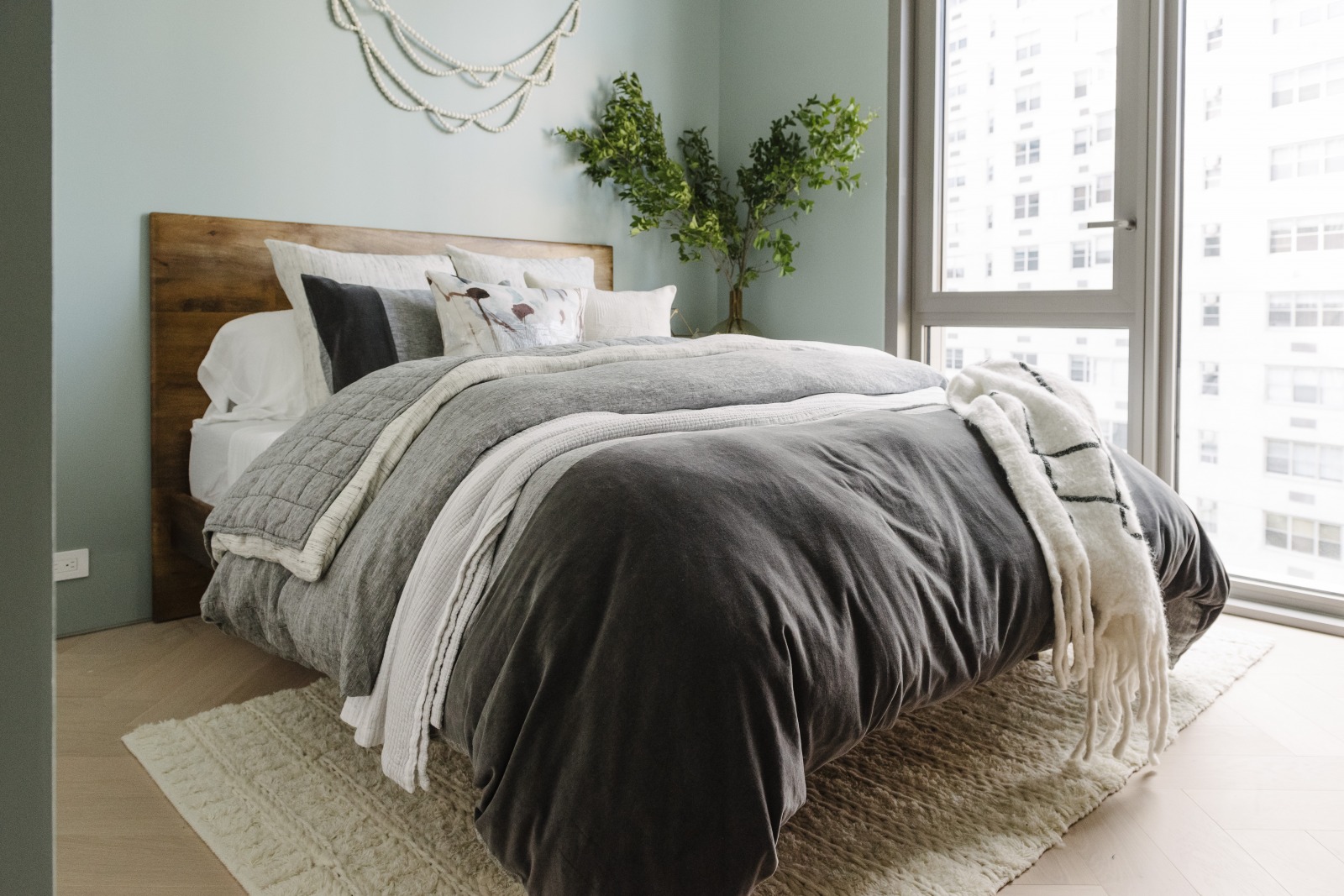
Keep clutter to a minimum, but plants are always welcome.
A few plants might also keep you company in your sleep sanctuary. Studies have shown that being around nature has numerous health benefits, including decreasing stress. Nature can be hard to come by in the concrete jungle, but an indoor houseplant or two can help introduce some of those healing elements, leading to a better night’s sleep.
“We feel that plants and flower arrangements in bedrooms are extremely important,” says Krasnow. “They are aesthetically pleasing, create healthy air conditions, and promote relaxation through scent.”
Brooklyn Rentals Under $3,500 on StreetEasy Article continues below
Remove Electronics (Except a Sound Machine)
Along with minimizing the clutter in your bedroom, you should also try to restrict electronic devices. “Keep your room technology-free,” says Wolf. “If your phone is on your nightstand, you’re more likely to check it, before bed and even in the middle of the night.”
In fact, Wolf recommends limiting all electronics 60 minutes before bedtime. “The blue light emitted by cell phones, televisions, computers, and tablets prohibits the production of melatonin, the hormone that controls your sleep/wake cycle,” she says. “It stimulates our brains, rather than helping to quiet our minds.”
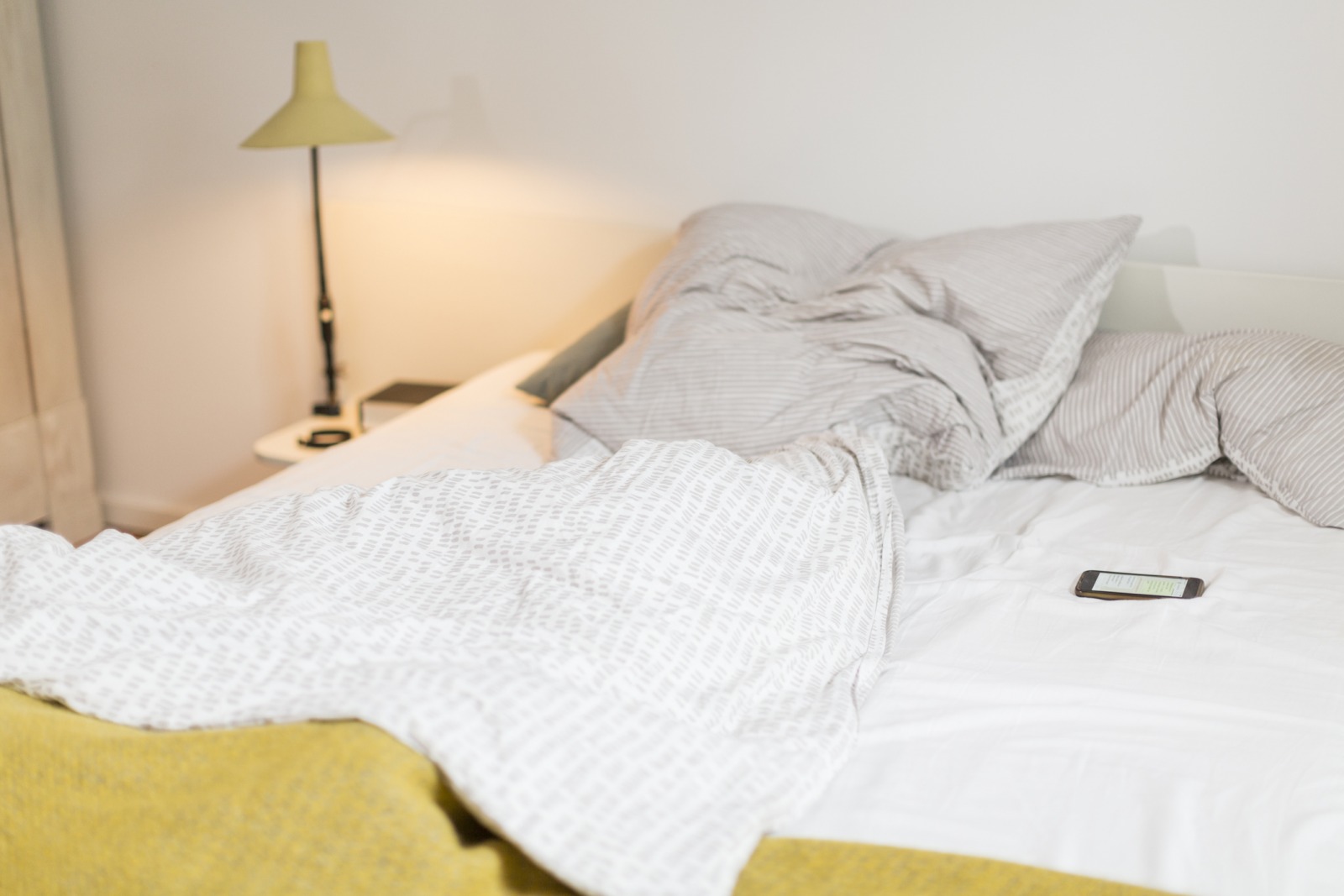
A smartphone in bed with you is a recipe for a poor night’s sleep. (EMS-Forster-Productions/Getty Images)
If you absolutely cannot sleep without your phone in your room, Wolf suggests setting an automatic “do not disturb” so that all calls will be silenced until your desired wake time.
There is one exception to this rule, especially if you are bothered by street noise or noisy neighbors: a sound machine. “The device works in two ways: by blocking distracting noises and by producing soothing sounds that are relaxing and help to induce sleep,” she says. “Make sure it plays on a continuous level all night, rather than automatically shutting off.”
More COVID-19 Content on StreetEasy
The Best and Worst Wall Colors for Sleeping
The main point is, our sleep area should be as serene as possible. That means staying away from bright and bold wall colors that can be energizing — not what you want while trying to drift off to dreamland!
Avoid reds and oranges in a bedroom, Krasnow advises. “They can be very alarming and do not help soothe,” she says. “The color blue, though, is known to slow down the metabolism and create a calming effect. We often create serenity with blue, including moody blues in bedrooms. We like to use calm, textured wallcoverings in blue that create a sense of warmth and serenity, to help to you relax and sleep well.” Cheers to that!
—
Inspired to find your next place in New York? Whether you’re looking to rent or to buy, search NYC apartments on StreetEasy.

